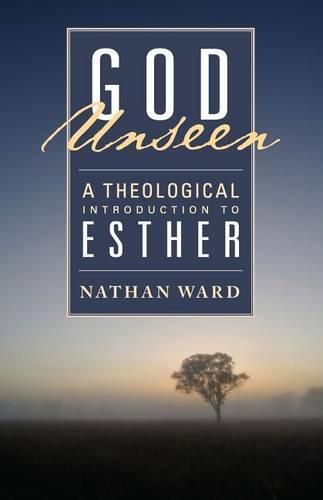Readings Newsletter
Become a Readings Member to make your shopping experience even easier.
Sign in or sign up for free!
You’re not far away from qualifying for FREE standard shipping within Australia
You’ve qualified for FREE standard shipping within Australia
The cart is loading…






This title is printed to order. This book may have been self-published. If so, we cannot guarantee the quality of the content. In the main most books will have gone through the editing process however some may not. We therefore suggest that you be aware of this before ordering this book. If in doubt check either the author or publisher’s details as we are unable to accept any returns unless they are faulty. Please contact us if you have any questions.
Preachers and commentators often focus on Esther as a story of divine providence. Many go so far as to say that the absence of any mention of God in Esther is proof of his presence-a tenuous foundation upon which to build a case! GOD UNSEEN argues that Esther is indeed intended to be read in a religious context and that it does speak to God’s providence, but shows this by a careful comparison of the text of Esther with many other Old Testament narratives that it echoes, thus setting it squarely in a canonical context. The result of such a contextual reading will give credence to the belief that God should be seen in those silences. Esther closely parallels life in 21st-century western culture. It tells the story of people who know how to be righteous followers of God, but who are surrounded by a world of paganism and, far too often, find themselves assimilating rather than standing apart. The characters receive no special revelation from God, nor does he seem to be present at all in their lives. Many Christians today live under a similar set of circumstances, so its message is vital. GOD UNSEEN’s argument that the book of Esther is religious and that God is present in the narrative will help give practical shape to modern questions of what it means to live during the apparent silence of God.
$9.00 standard shipping within Australia
FREE standard shipping within Australia for orders over $100.00
Express & International shipping calculated at checkout
This title is printed to order. This book may have been self-published. If so, we cannot guarantee the quality of the content. In the main most books will have gone through the editing process however some may not. We therefore suggest that you be aware of this before ordering this book. If in doubt check either the author or publisher’s details as we are unable to accept any returns unless they are faulty. Please contact us if you have any questions.
Preachers and commentators often focus on Esther as a story of divine providence. Many go so far as to say that the absence of any mention of God in Esther is proof of his presence-a tenuous foundation upon which to build a case! GOD UNSEEN argues that Esther is indeed intended to be read in a religious context and that it does speak to God’s providence, but shows this by a careful comparison of the text of Esther with many other Old Testament narratives that it echoes, thus setting it squarely in a canonical context. The result of such a contextual reading will give credence to the belief that God should be seen in those silences. Esther closely parallels life in 21st-century western culture. It tells the story of people who know how to be righteous followers of God, but who are surrounded by a world of paganism and, far too often, find themselves assimilating rather than standing apart. The characters receive no special revelation from God, nor does he seem to be present at all in their lives. Many Christians today live under a similar set of circumstances, so its message is vital. GOD UNSEEN’s argument that the book of Esther is religious and that God is present in the narrative will help give practical shape to modern questions of what it means to live during the apparent silence of God.